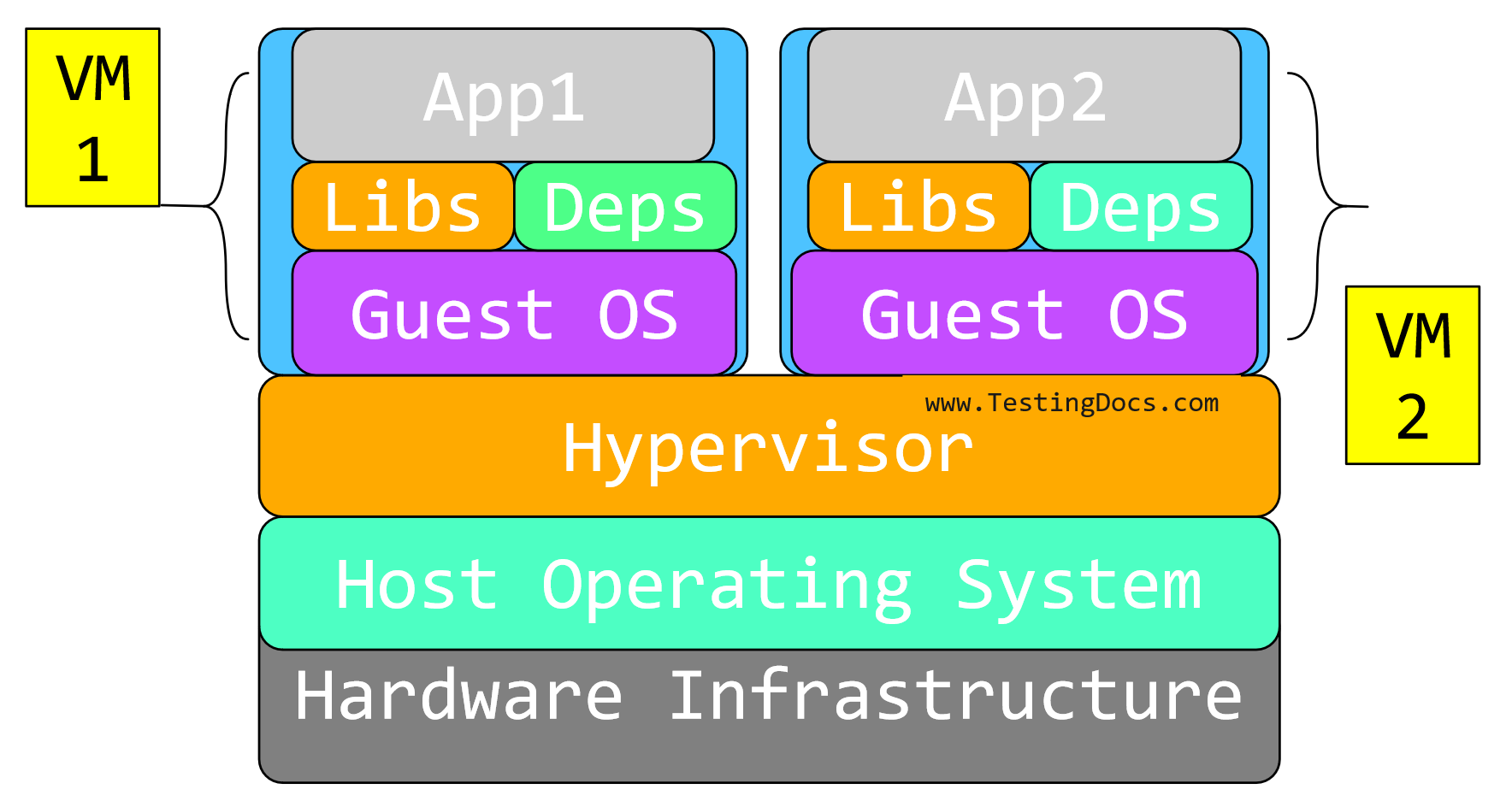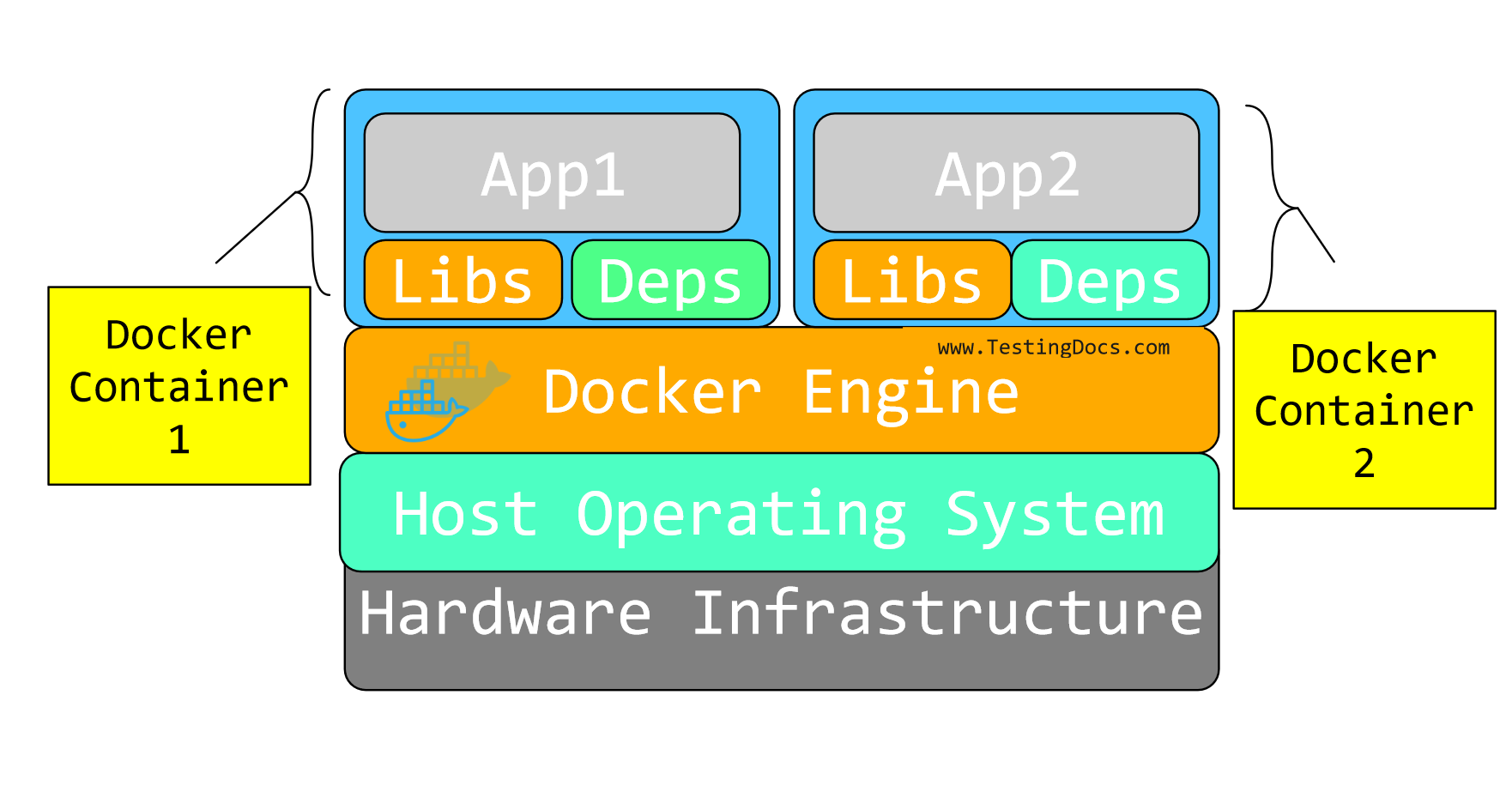Docker Containers vs Virtual Machines
Overview
In this tutorial, let’s understand some key differences between Docker containers and Virtual machines. Nowadays, Containerization is popular in the IT industry as an alternative to Virtualization.
Virtual Machines
A virtual machine is an emulation of a physical computer. It uses software instead of a physical computer to run software programs and applications. Multiple virtual machines can run on the same physical host computer. Each virtual machine runs
its own operating system called the guest operating system. Each VM operates and functions separately from the other VMs.

A hypervisor is a software that manages multiple virtual machines. There are different kinds of hypervisor software.
Docker Containers
A Docker container is a standard unit of software that packages software application and all their dependencies. Docker Container images become containers at runtime when they run on the Docker Engine. Docker Engine is the container runtime that runs on various operating systems like Linux, and Windows. Docker Container isolates software applications from its running environment.

Containers vs Virtual Machines
Differences between the Docker containers and Virtual machines are as follows:
| Docker | Virtual machines |
| Docker containers provide OS-level isolation. | Virtual machines provide hardware-level isolation. |
| Docker containers are lightweight and are much smaller in size compared to virtual machines. Containers require less time to boot. | Virtual Machines are heavyweight. Virtual machines require more time to boot. |
| Docker Containers require fewer computing resources. We can deploy and run more containers compared to VMs on the same hardware. | Virtual machines require huge computing resources. We can run fewer VMs compared to containers. |
Official Website
More information on Docker can be found on the Docker official website at::






